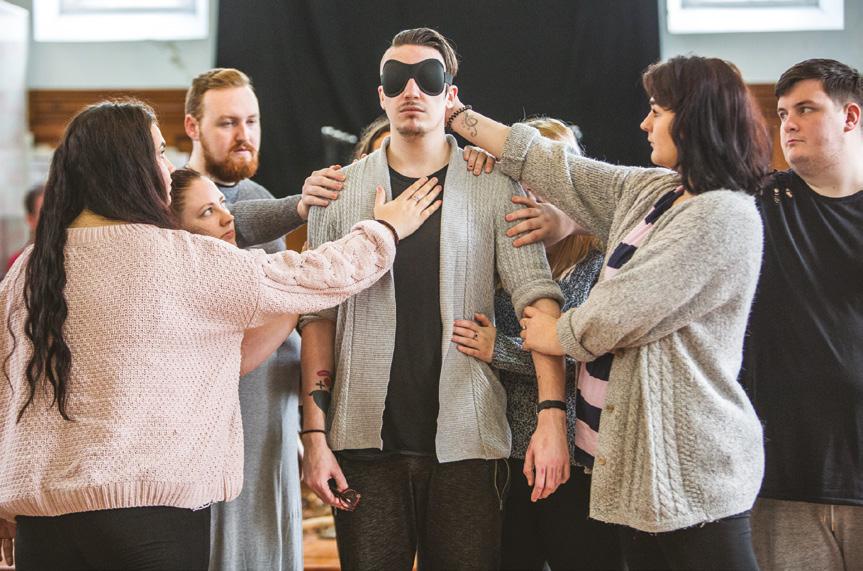Inspiration from ACE Interrupters in Great Britain
Pattie Santelices – a shoulder to cry on Strategy officer, health and wellbeing, City of Edinburgh Council, Scotland For as long as Pattie Santelices can remember, people have come to her with their problems. “I don’t mind asking people questions,” she says. “I was always able to offer a listening ear and sit with other people’s distress.” In person, she fizzes with energy, combining strength of purpose with a keen sense of empathy – it comes as no surprise that people used to cry on her shoulder at parties. “Maybe there was something about me that meant people saw it as a secure base to tell me things.” At Edinburgh City Council, where Pattie now sits with a cup of tea, she has found her dream job promoting wellbeing and resilience across the city. Her role at the council also includes raising awareness of adverse childhood experiences (ACEs) in schools through an award-winning project called Turn Your Life Around. At university, Pattie studied psychology – “I’ve always been passionate about this area” – before ending up at Edinburgh Council in 2007. She went to university with high hopes but was disappointed when her course included only one lecture on attachment theory – looking at the quality of emotional bonds between a child and its caregiver – and nothing on positive psychology. “I don’t remember being taught that the brain continues to change… or that your thinking influences brain science.” Pattie’s remit at Edinburgh Council covers mental health and wellbeing, children’s rights, child poverty and raising awareness of ACEs – her team supports the delivery of programmes, training and resources in these four areas. “In a weird way, all the training we’ve now written are the things I would have liked to learn at university,” Pattie says with a brief, gusty laugh. The Turn Your Life Around (TYLA) programme – run in partnership with Police Scotland – uses a team of volunteers with experience of childhood trauma to communicate its key message: it is never too late to turn your life around. “Despite 50 years of research on resilience, which shows that the majority of people can turn things around in later life on a range of measures, you never really heard those stories,” explains Pattie. It seemed that schools – even if they knew about resilience factors – were still sometimes writing off children with ACEs because of their behaviour. To counter this missing narrative about the power of resilience, TYLA sends its volunteers into schools to share their life-stories about overcoming adversity. “What TYLA did was scoop up local people who were willing to share their story with a view to really cementing in staff and children’s minds that this point of time is not fixed,” she says, “that your history is not your destiny.” The programme uses the volunteers as positive role models for the more troubled pupils who don’t always relate to their teachers. “I remember one child saying, ‘I know that the teachers say they believe in me but they’re not like me and they don’t know me,’” Pattie recalls. “The idea of putting these volunteers in with their stories was, ‘Oh, these are people who know and they are still saying you can turn it around.’” Volunteers talk about specific acts of kindness – such as a conversation where someone showed concern – small interventions that helped to get their lives back on track. Explaining the significance of these moments educates the children about being kind and empathetic towards each other. Finally, the TYLA programme encourages the pupils to discuss 36





